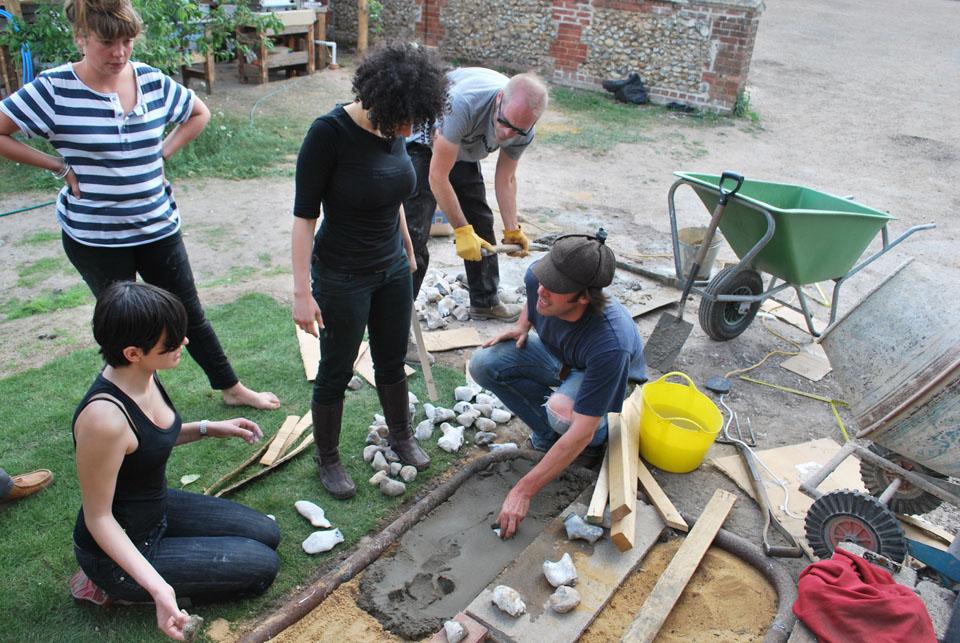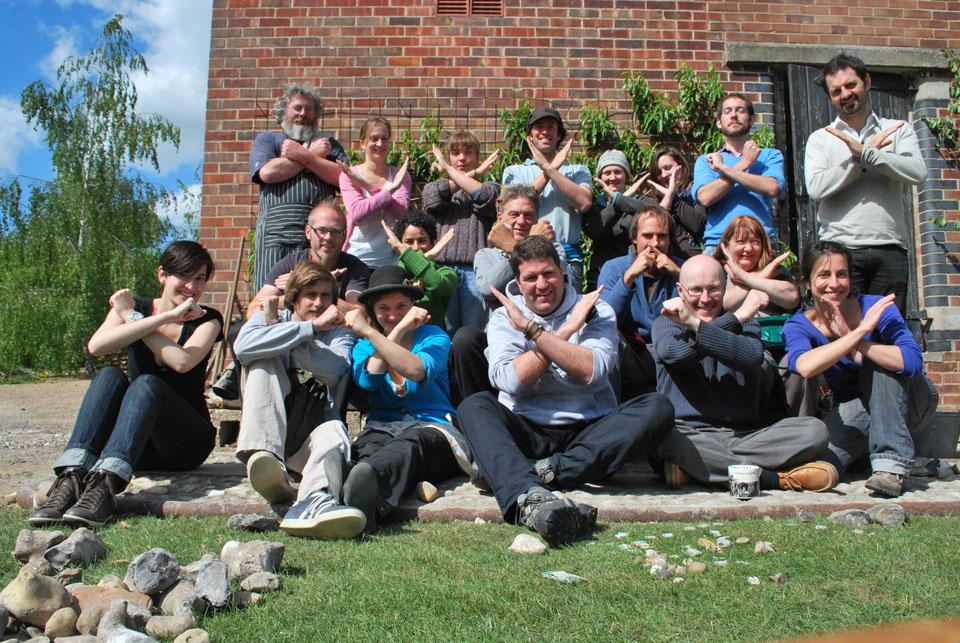Nicola Twilley: What inspired you to launch Xskool?
John Thackara: I've been organizing Doors of Perception conferences since 1993. People find them stimulating, and often tell me that they go back to their day job on Monday morning much invigorated. But it began to feel as if we were running some kind of spa for jaded designers. Moving the conference to India in 2002 changed the atmosphere, but Doors then was still a conventional conference in which smart people strutted their stuff on stage in front of a passive audience.

Meanwhile, it's become rather obvious that the architecture and practice of design institutions are transitioning much too slowly, at least relative to the speed with which they need to change to create a sustainable future. Institutions are slow to adapt and I'm now old enough that I don't wish to go into battle and denounce the conservatives in design schools—because, ultimately, there's no great point in that. Instead, what I realized could be helpful is to create parallel experiences for the people who are already keen to change, that are not based on awareness-raising but instead go to the next step, which is to give them skills to do their job better. When we started Doors of Perception in 1993, several people complained that we were not formally accredited and couldn't issue degrees and so on. So I took myself off to one of the top universities in The Netherlands to ask if they might be able to award course credits for something like this. And they said, "Young man, this university is 920 years old, and we didn't grow to be this old by jumping onto bandwagons. Come back in ten years and if this internet thing is still interesting then, we'll consider your program."
That was the moment where I officially retired from trying to change institutions frontally, and changed my motto to "Just do it." Find the people who are going to do it anyway and help them get together and give them training in the practical skills that will make them more effective. And what I'm describing is precisely that.
The purpose of Xskool is to help change-minded people participate, interact, and reflect. They will learn what they need to learn at that moment in time. Xskool is not a standardized package. "X" means this place, this moment, these people. At each Xskool encounter, the host venue will present a task or a question for the visiting group to work on. This question is not posed in advance; rather, it is emerges from a mindfully-orqanized process, such as Open Space or World Café, when the group first assembles at the location.
Also, Xskool does not pretend to be unique. If a thousand similar experiences happened at the same time as our first Xskool at West Lexham: well, good —and lucky them!
But although Xskool is neither standardized nor unique, we are developing principles, for Xskool events that will help us behave respectfully and modestly at each location. For example, we avoid using words like 'social impact' when the impact is on someone else's situation.
The purpose of Xskool is to help change-minded people participate, interact, and reflect. They will learn what they need to learn at that moment in time. Xskool is not a standardized package.
First, join the mailing list at http://xskool.com. Our idea at the moment is that new participants will be introduced by current members of the Xskool community. We don't want to become an exclusive club, but Xskool is for people who share certain values, not just those who can pay. There are so many people out there who are really desperate to stop talking about things and instead to do something. I think Xskool might be a way to harness some of that positive energy in useful ways. Of course, we are just getting started. We're compiling a list of existing courses and projects with whom we hope, in time, partner, so there's no need to wait for us — there are some amazing projects and institutions out there.

